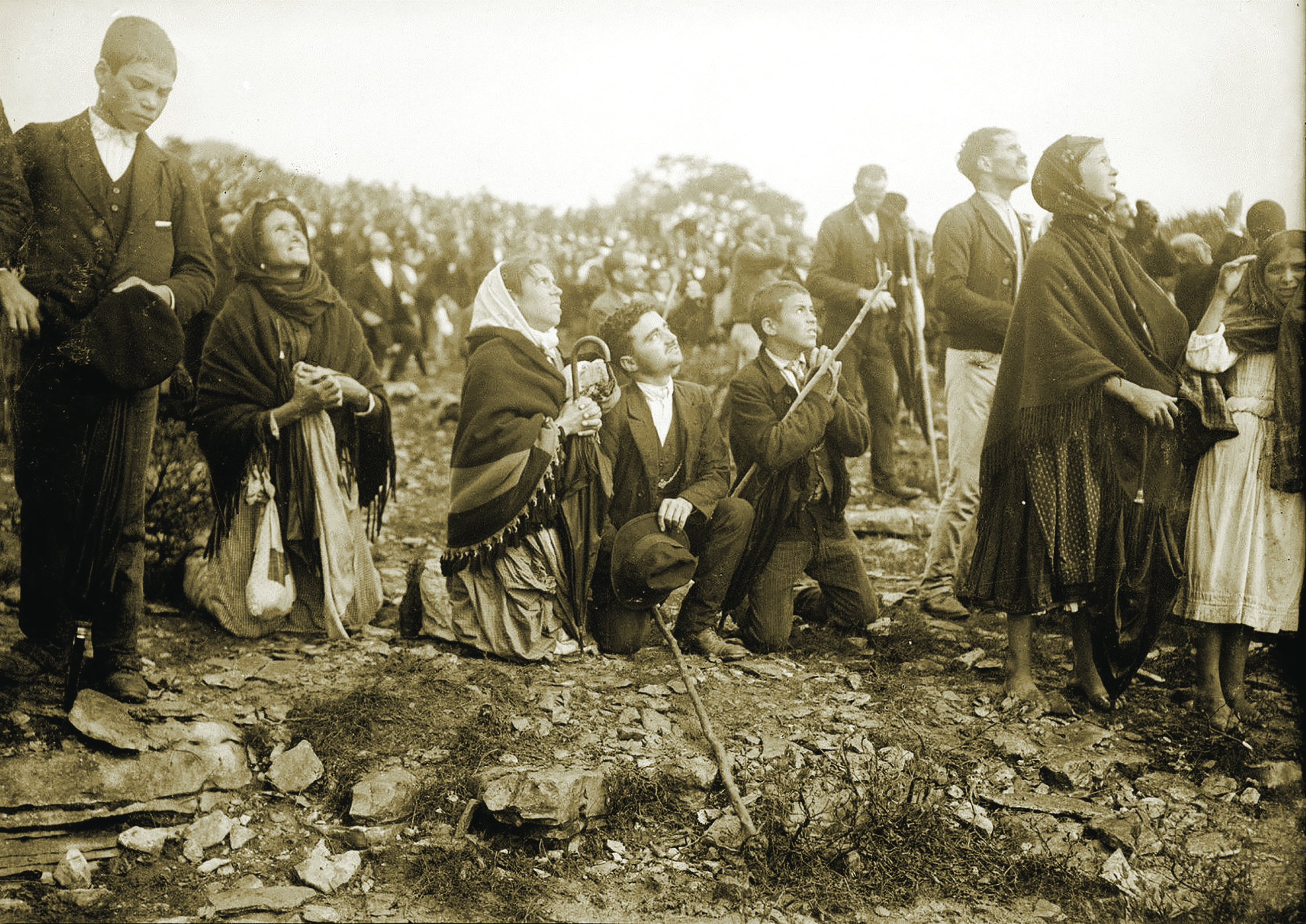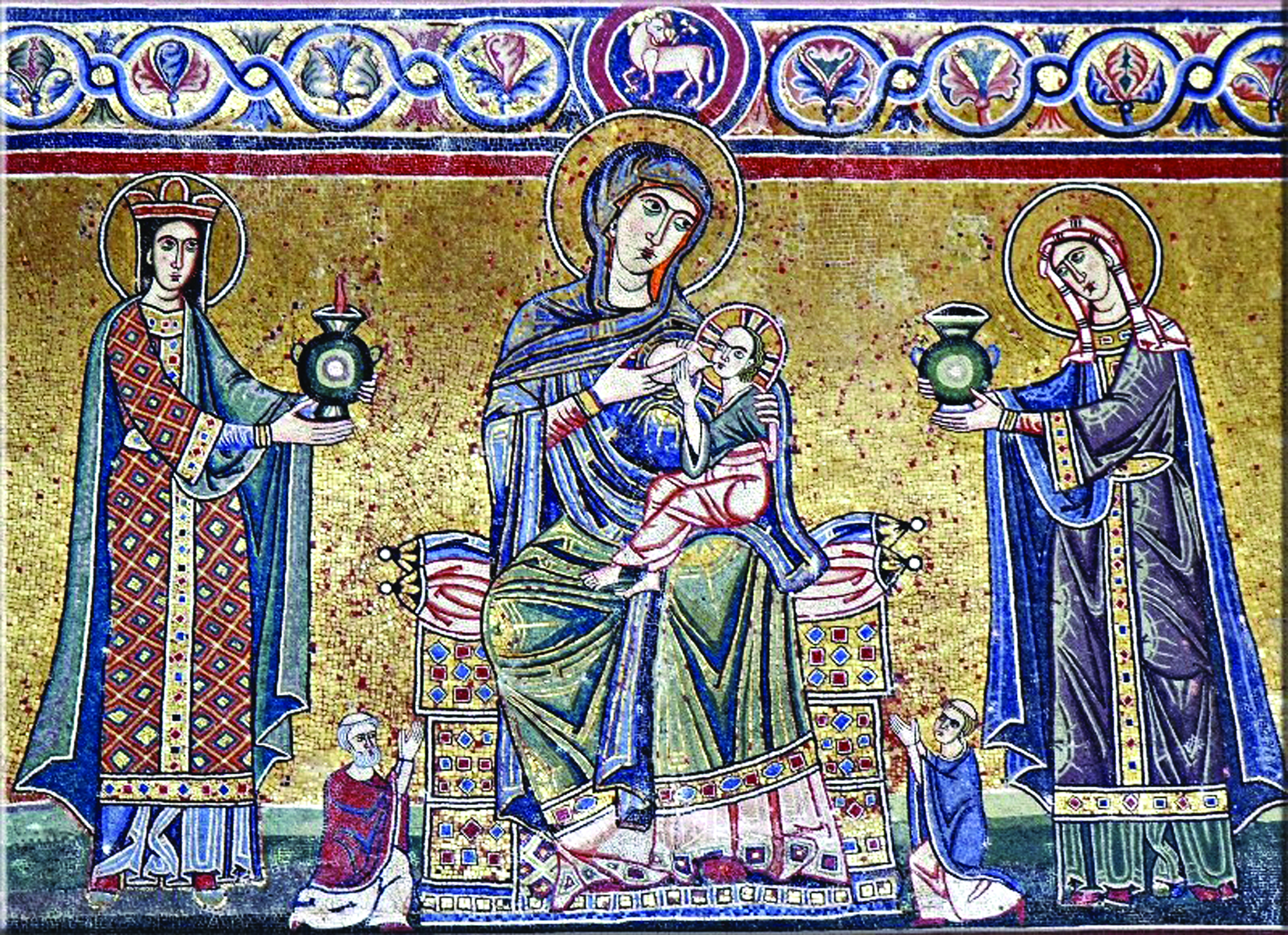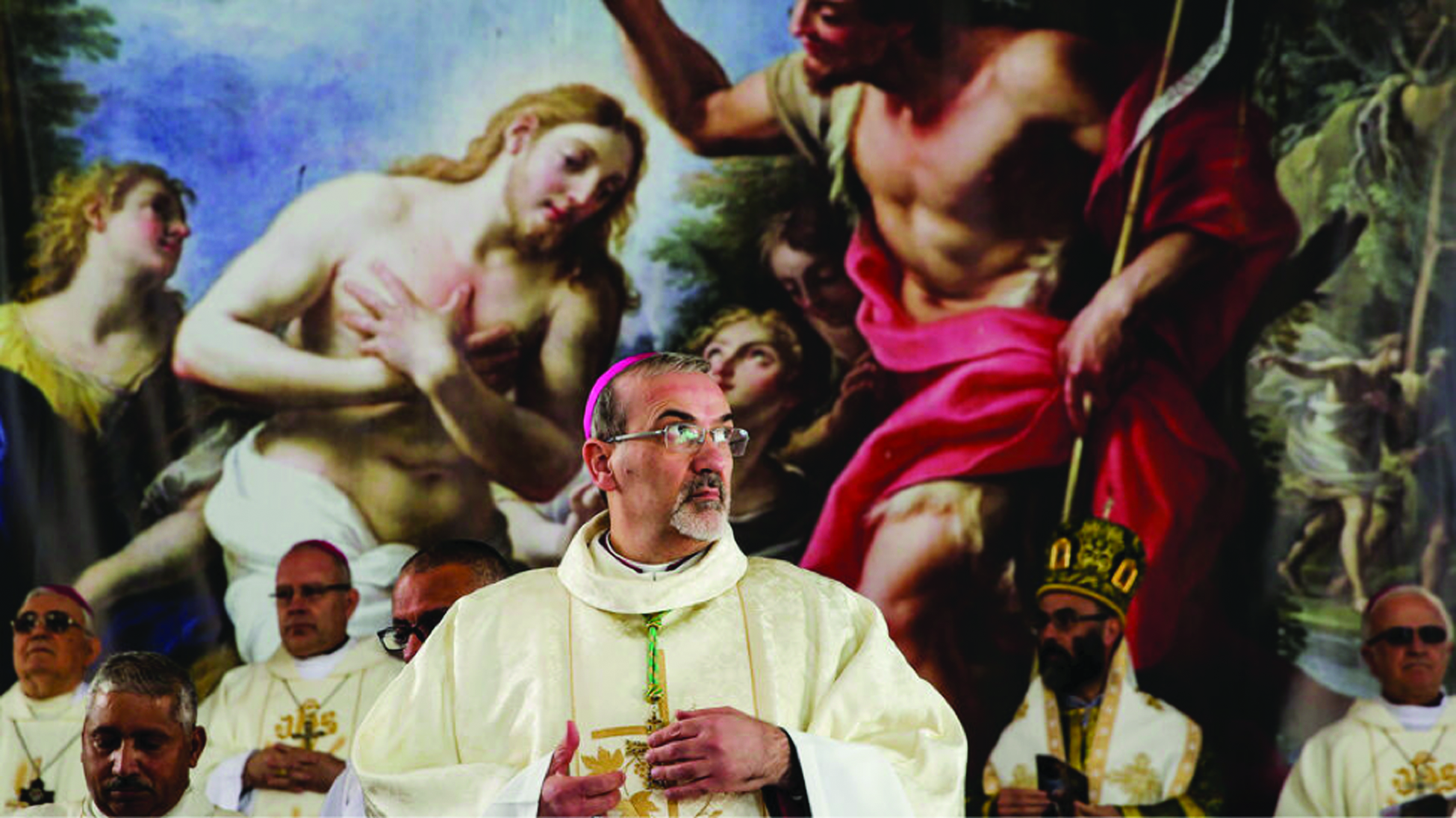A religious procession, a brainstorm session and a few glasses of wine led a group of residents gathered in a shantytown on the outskirts of Buenos Aires, Argentina, to come up with a plan to interview Pope Francis.
It was a warm, Southern Hemisphere’s summer night in January when folks sitting in the church courtyard during a local feast day celebration felt inspired to consider “What if …?” according to a journalist living in Buenos Aires.
“To tell the truth, a few glasses of wine were also involved, which, in the right amount, inspires bold ideas,” said Alver Metalli, who was also the mastermind behind the shantytown launching its own community newspaper in December.
“An interview for a publication produced in a shantytown with questions formulated by the people who live there (seemed like) two good ideas that could lure the Pope” into agreeing to do the interview, he wrote for the news site Vatican Insider on March 10.
The local parish priest, Father Jose Maria “Pepe” di Paola, collated inquiries from hundreds of children and young adults and boiled them down to about a dozen questions, Metalli said.
He said that when the priest visited the Pope at his Vatican residence February 7, he handed the written questions to the Pope, who — to the priest’s surprise — said he would do the interview immediately.
Metalli said, “Father Pepe had no other choice than to take out his cell phone and start recording” as the Pope spoke candidly about the role of big money in political campaigns, getting along with people who disagree with him, children becoming “museums” of information and his awareness that his life is in God’s hands.
“I told the Lord, ‘You take care of me. But if your will is that I die or that they do something to me, I ask you just one favor: that it doesn’t hurt because I am a big wimp when it comes to physical pain,’” the Pope said, when asked about people’s concerns for his safety.
When asked what advice he had for politicians during Argentina’s election year, the Pope said that something “very healthy” would be for candidates to have “a clear electoral platform.” Candidates should express detailed and concrete plans of what they would do and what they thought about issues, that is, “honesty in the presentation of their position,” the Pope said.
Ideally, he added, campaigning should have no strings attached and, therefore, be run for free, making it unnecessary to drum up financing, which “calls into play many special interests who then ‘ask for the bill,’” alluding to expectations big donors want something in exchange for their contributions.
“Obviously that is an ideal, because money is always needed for billboards, television,” in which case, he said, the flow of money should be “transparent and clean” so that citizens know who is financing which candidate and with how much.
The Pope was asked if there were people around him who were not in agreement with what he says and does, and after he answered “Yes, of course,” he was asked how, then, does he interact with them.
“Listening to people, for me, never did me any harm. Every time I listened to them, it always went well. Those times that I didn’t listen, it went badly,” he said. “Even if you do not agree with them, they always, always, give you something or they put you in a situation that forces you to rethink your position, and this enriches you,” he said.
Dialogue and openness were the proper ways “to behave with those with whom we don’t agree,” he said, because if “I stop saying ‘hello,’ I shut the door in his face, I don’t let him talk and I don’t ask him the reasons for the disagreement, obviously I singlehandedly impoverish myself. Dialogue and listening enrich us.”
The Pope was asked about young people’s attraction to “virtual relationships” and how to help them escape “their world of fantasy” and to experience “real relationships.” The Pope said there was a difference between fantasy and online interactions because “sometimes virtual relationships are not imaginary, but are concrete” and real.
However, he said, the best thing is for people to have real, physical interaction and contact with each other. He said the big risk he sees is with people’s ability to gather such a huge amount of information that nothing is done with it and it has no impact on changing lives. He said this process turns young people into a sort of “youth museum.”
“A youth museum is very well-informed, but what does he or she do with all that knowledge?”
Having a rich fruitful life is not found in “the accumulation of information or just through virtual communication, but in changing the reality of existence. In the end, it means loving,” reaching out to people physically, touching the world and moving forward with one’s life.
The head, heart and hands must all work in harmony together where “you think what you feel and what you do; you feel what you think and what you do; and you do what you feel and what you think. This is concrete reality. To only be in the virtual world is like living in a head without a body,” he said.
Pope Francis Gives In-Depth Interview to Mexican Televisa News
Interview Released on Second Anniversary of His Pontificate
Pope Francis was interviewed by journalist Valentina Alazraki, correspondent of Televisa News in the Vatican, just days before his second anniversary as pontiff. During the interview, the Pope spoke about the reactions unleashed by the e-mail sent to an Argentine friend where he advised “avoiding the Mexicanization of Argentina.”
The Pope also makes reference to the violent events that have affected Mexico in recent years, but he affirms that it is not the first difficult moment the country has gone through in the course of its history and that it will be able to surmount it.
During the interview the Pope remembered the day of his election as Successor to Peter, the peace that he felt that day and that he still feels to this day. He also commented on the reform of the Curia, the Synod on the family, and the scandal of sexual abuse by priests.
In regard to what a visit to Mexico means and its border with the United States, the Holy Father explains that “today emigration is the fruit of unease in the etymological sense of the word, fruit of hunger, of seeking new frontiers.” However, evidently — he points out – migration today is very related to hunger, to the lack of work. “This tyranny of an economic system that has the god money at the center and not the person, no? Then people are discarded,” says the pontiff. In this connection, he is pleased that Europe is revising its migratory policy. “Italy was very generous and I want to say this,” said Francis, referring to the situation of Lampedusa.
However, returning to the concrete situation of the border of Mexico and the United States, the Pope points out that “in addition it is an area of much fighting with problems of drug trafficking.” And he spoke of Morelia, that whole area, “it’s an area of very much suffering where there are also organizations of drug traffickers who don’t go small, no? That is, they are able to do their works of death, no? They are messengers of death, be it because of drugs, or to cleanse, in quotation marks, those who are opposed to drugs. The 43 students, are asking in some way — I’m not saying for revenge, but for justice, that they be remembered.”
In this connection, Francis said that he wanted to make the Archbishop of Morelia a Cardinal “because he is in the frying pan.” That is, he explains, he is a man who is in a very hot area, and he is a witness as a Christian man, as a great priest.
Speaking about the difficult moment Mexico is going through, the Pope indicated that it’s not the first time it is experiencing this. “I think that the devil punishes Mexico with much anger, because of this: I believe the devil doesn’t forgive Mexico, for the fact that She showed her Son there [at Guadalupe]. My interpretation,” states the Pope.
In so far as responsibility is concerned, Francis noted that not all the blame should be pinned on the Government. “I know it’s very difficult to denounce a drug trafficker. … It’s hard, but I think everyone in situations like this, whether in Mexico or not, we must all put our shoulder to the wheel. That is, to blame one sector, one person, one group is infantile.”
The Pope also answered a question on the “Mexicanization” of Argentina, which he mentioned in a private e-mail to a friend of his and, in certain sectors, that expression was wounding. “Evidently it is, allow me the word, a technical term. It has nothing to do with Mexico’s dignity. As when we speak of Balkanization, neither the Serbs, nor the Macedonians, nor the Croats get angry. Now there is talk of Balkanizing something. It’s used technically and the media have used it many times, no?”
And he specified that he read statistics that state that 90% of the Mexican people were not offended by it. “Which makes me happy. It would have been very painful for me had it been interpreted that way.”
Referring to this event, that a private e-mail ends up being public, the journalist asked him if he has not thought of saying to people, when he calls or writes, “this is private.” Francis explained that he generally does “but sometimes people don’t; they can’t keep it to themselves.”
The Pope affirmed that “at times I have felt used by the politics of the country. Argentine politicians who have requested an audience.”
The interview coincides with the second anniversary of Francis’ pontificate, hence the question about the day of his election.
“It was very simple. I came with a small suitcase because I calculated and said the Pope will never assume office in Holy Week. Therefore, I can return calmly and be in Buenos Aires on Palm Sunday. I left the homily for Palm Sunday ready on my desk and I came with what was necessary for those days, although I thought it could be a very short Conclave, no?”
In regard to the Conclave, the Pope said that the phenomenon of the voting is a very interesting phenomenon. “There are already very strong candidates. Then the conclave chooses six, seven, which are the ‘deposit’ votes. I ‘deposit’ my vote in you, and when I see who is going I give it to him. The first votes are… it’s like something provisional. This is general in the voting of large groups. That is, yes, I received some votes, but in deposit…”
In the first round of voting in the afternoon — continued the Pope — “when I saw that it could be irreversible, and I want to tell this because it has to do with my friendship with Cardinal Hummes, which for me is very great, I had him next to me, and he said to me: ‘Don’t worry, the Holy Spirit works this way.’”
Moreover, the Pope also said that during the voting, he was praying the Rosary, “I used to pray the three Rosaries daily, I had much peace. I would say even unawareness; the same when the election took place, and for me it was a sign of God that He wanted that. Peace — up to today I haven’t lost it.”
And that day he had his first “problem with protocol,” when he asked the Vicar of Rome and Cardinal Hummes to accompany him at that moment, something that wasn’t foreseen. In regard to the concrete moment at the central window of the Basilica, Francis recalls that he felt profoundly that a minister needs God’s blessing, but also that of the people.
In addition, he answered questions about what he likes most and doesn’t like about being Pope. He likes everything, but “the only thing I would like is to be able to go out one day, without anyone recognizing me, and go to a pizzeria to have a pizza.”
He also explains that it’s not that he didn’t like coming to the Vatican; what the Pope doesn’t like is to travel. “I’m very attached to my habitat, it’s a neurosis,” he jokes. In regard to living at Santa Marta’s, he explains that “it’s simply because there are people there. I, over there by myself, I wouldn’t have endured it. Not because it’s luxurious, as some say, no. It’s not luxurious. The apartment is not luxurious. It’s big. But I wouldn’t have tolerated that solitude.”
Francis said in the interview that his pontificate “will be brief.”
“I have the feeling that the Lord has me for something brief, no more, but it is just a feeling.” Regarding the possibility of resigning, he noted his belief that “what Pope Benedict did was open a door.”
He remembered seeing Benedict at the recent Consistory, saying that he was “happy, content. He is respected by the whole world. I go to visit him. Sometimes I speak to him over the telephone. As I said, it is like having a wise grandfather at home.”
During his first meeting with Benedict XVI on March 23, 2013, “There I felt as if my father was taking me and teaching me and made me sit. He was the host in the most human sense of the word.”
Another issue that was discussed in the interview was the reform of the Curia. And Francis spoke on the conversion of the heart. “It has to leave what it may have of the court still and become a working group at the service of the Church. At the service of the bishops. Evidently that shows a personal conversion.”
He also spoke concretely on the symbols: the car, the clothes…
“I try to be me, as I like, and sometimes I exaggerate in some things that might offend someone. I don’t know if in that I have to be careful.”
At the same time, he explained his address to the Curia on Christmas and the weaknesses that he mentioned. The theme of what he said was “that we are at the end of the year, let us do an examination of conscience.”
But, he noted, it does not mean that the Curia is falling into pieces because of all those complications and weaknesses.
Regarding resistance in the Curia, the 78-year-old pontiff affirmed that he has never punished someone for telling him things to his face: “Those are the collaborators I want.” Regarding his preference for the poor, the Holy Father said that what always strikes him is “seeking security in wealth. Don’t put your security there. In the Gospel, Jesus is radical on this point.”
He also confirmed that he is shocked “by unjust salaries. Because one becomes rich at the cost of the dignity deprived to someone else.”
Another important point that is spoken of in the interview is on the Synod of the Family. The Pope believes that there are “exaggerated expectations” and clarified that the Synod of the Family was “not desired by me. The Lord wanted it. And it is something that is His.”
The Pope noted that “there is a crisis within the family” and from that point of view, he believes that what the Lord wants the Church to face is “the preparation for marriage, accompanying those who live together, accompanying those who marry and carry their families forward well, accompanying those who have failed, in the family, and have made a new union, preparation for the Sacrament of marriage, not all are prepared.”
And regarding the way the Synod developed, the Pope said that he is opposed to publishing everything that each one says with first and last name. “That it is known what was said, I have no problem,” he said. “But not who said it. That way they can feel free to say what they want.”
—Zenit News Agency








Facebook Comments